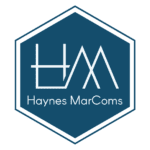Members of EUHOFA, the International Association of Hotel School Directors, as well as the many institutions and agencies involved in professional hospitality education, are continuing to grapple with the problem of how best to assess individuals in terms of their professional competence. This was a recurring issue at the recent EUHOFA Congress in Berlin and whilst many schools have developed their own individual solutions, there is no common international framework that could be applied. Join the discussion here by completing a short 5 question survey.
In higher education the approach is often, “get them to write about it because we can mark that easily”. In vocational schools it is often some form of simulated environment or test that takes place within the school rather than within the workplace. It is understandable that they would wish to control the environment as much as possible and that the students are set similar or identical tasks to perform. This approach is easier to administer, grade and calibrate against standard defined criteria, but what it fails to recognise is that these assessments are not a reflection of the individuals professional competencies in the real world of work. It is within that real-world that they will be professionally judged irrespective of what their qualification might indicate.
The “Renaissance of learning in the workplace”
The emphasis on the importance of employability and professional competence is a recurrent international theme. In the United Kingdom for example there is renewed emphasis on apprenticeships, including higher apprenticeships. Within the European “Dual System” there is emphasis on the international recognition and transfer of credit, through schemes such as ECVET. These are indicators of what has been referred to as the “Renaissance of learning in the workplace”, the type of learning that the OECD in 2009 reported on as stating “The workplace offers a very high quality environment, allowing students to acquire practical and professional skills on up to date equipment with practitioners familiar with the most recent working methods and practices.” Unfortunately the very nature of education, its bureaucracy, systems and practices means that it’s slow to respond to and implement change, so the assessments that students are doing today were designed and implemented a decade ago. The rapid pace of change in the industry is not reflected either in the assessments themselves nor the way that the assessments are carried out. This leads to justifiable criticisms from the industry that the systems do not equip the students with the professional competencies, attitudes and values that are essential for the modern workplace.
It is the interconnection between learning, working and the education system’s ability to capture and record the professional competence of the student and recognise that, through awarding a qualification that is key. Assessments are normally justified on the basis of transparency, validity and reliability.
- Is the assessment understood?
- Does it measure what it is intended to measure?
- How reliable is it when used on differing occasions but testing the same outcomes?
There are however a number of wider issues to be considered than the rather narrow focus that is often applied. Firstly the recognition that assessment or testing in itself does not guarantee learning. Evidence-based repeatable outcomes are; a more accurate assessment of professional competence, and that assessments undertaken in the complexity and pressures of the workplace are more reliable indicators of the overall professional ability to do the job.
Looking back to the future
It is entirely possible to develop reliable, valid and transparent mechanisms to be able to conduct assessments in the workplace, in fact that approach was the only approach for many hundreds of years long before we formalised qualifications. This is not to suggest that we should go back in our approach but we should be looking to the future to develop systems that recognise the dynamic changes that take place in the industry. These changes must be reflected in the way that we conduct the assessments for qualifications if they are to be valued and trusted by the very industry that the qualification are designed for in the first place.
You may or may not agree that assessment in the workplace is the best way or you may feel that the responsibility is for educational institutions and should be conducted entirely in the institution. As part of this ongoing discussion it would be helpful if you make your views known by completing a short 5 question survey by clicking on the link below.
Professional Assessment in the Workplace
About the author
Professor Peter A. Jones, MBE, is the Dean of the eHotelier Academy. With a distinguished career in hospitality, education and training, Peter has been involved with national and international projects with clients involved in hospitality education. Peter is a Director the Edge Hotel School and of Hotel Future, a new education and training initiative in Greater Manchester and is a Visiting Professor at the University of Derby. He was also awarded a Member of the Order of the British Empire for services to the hospitality industry.














